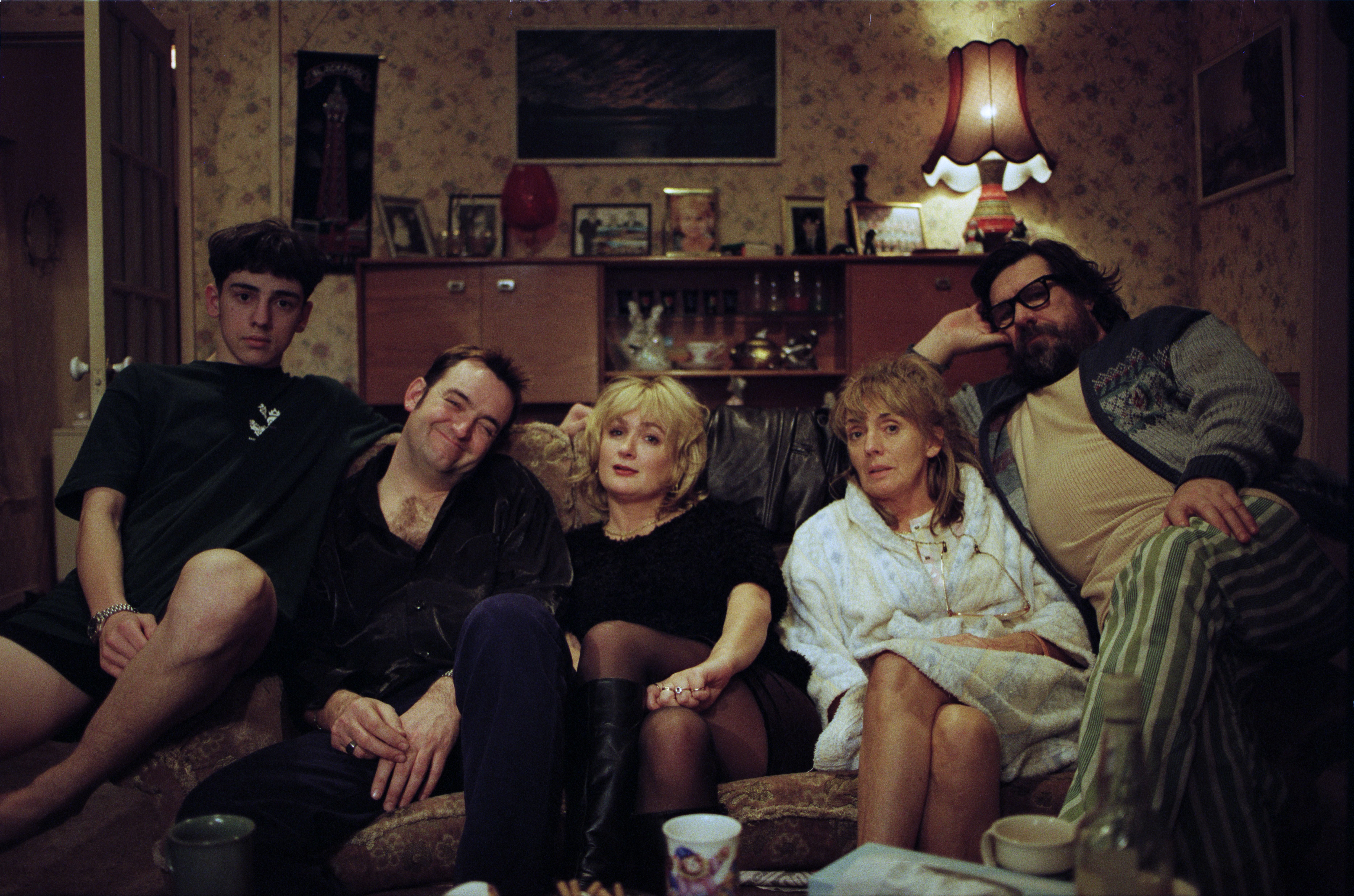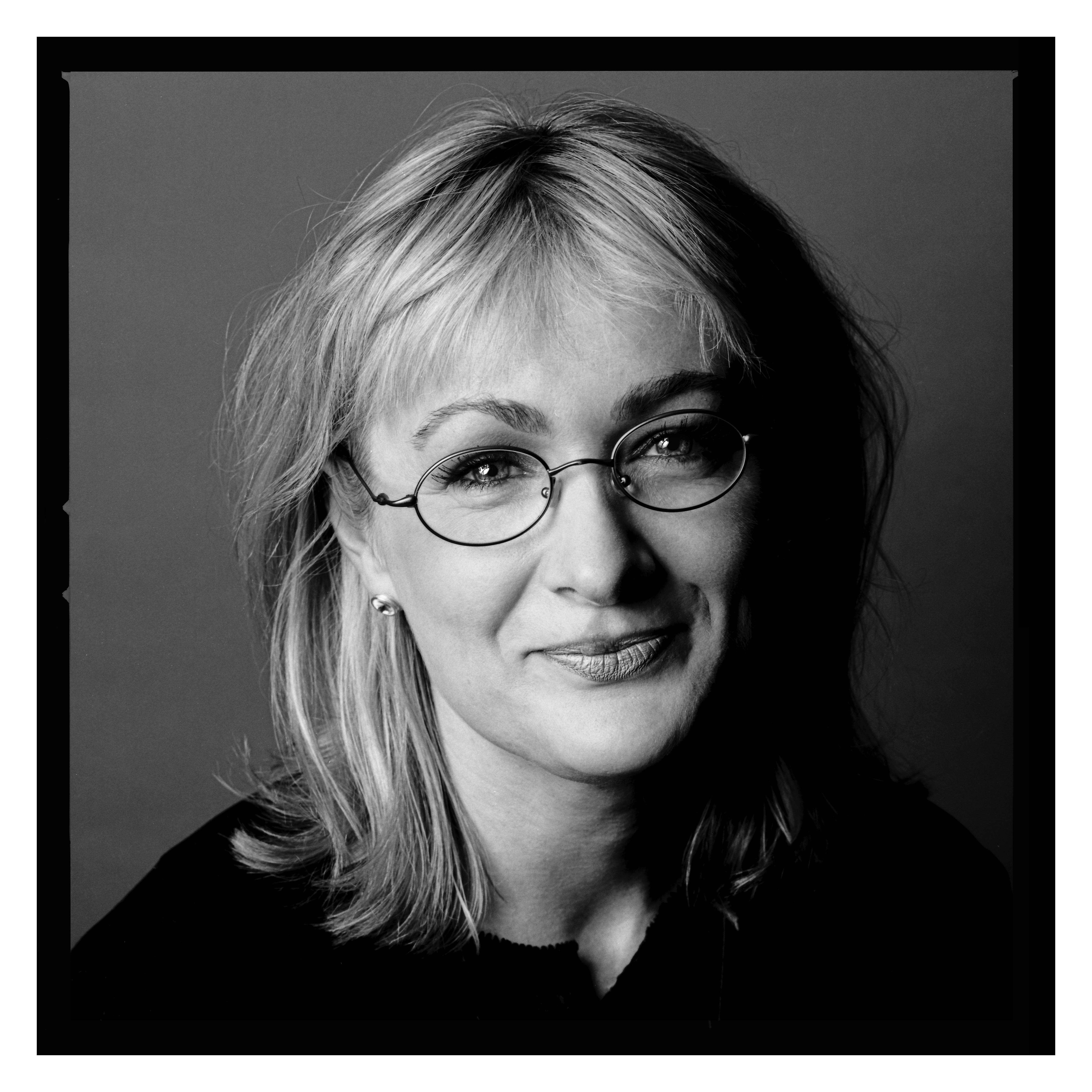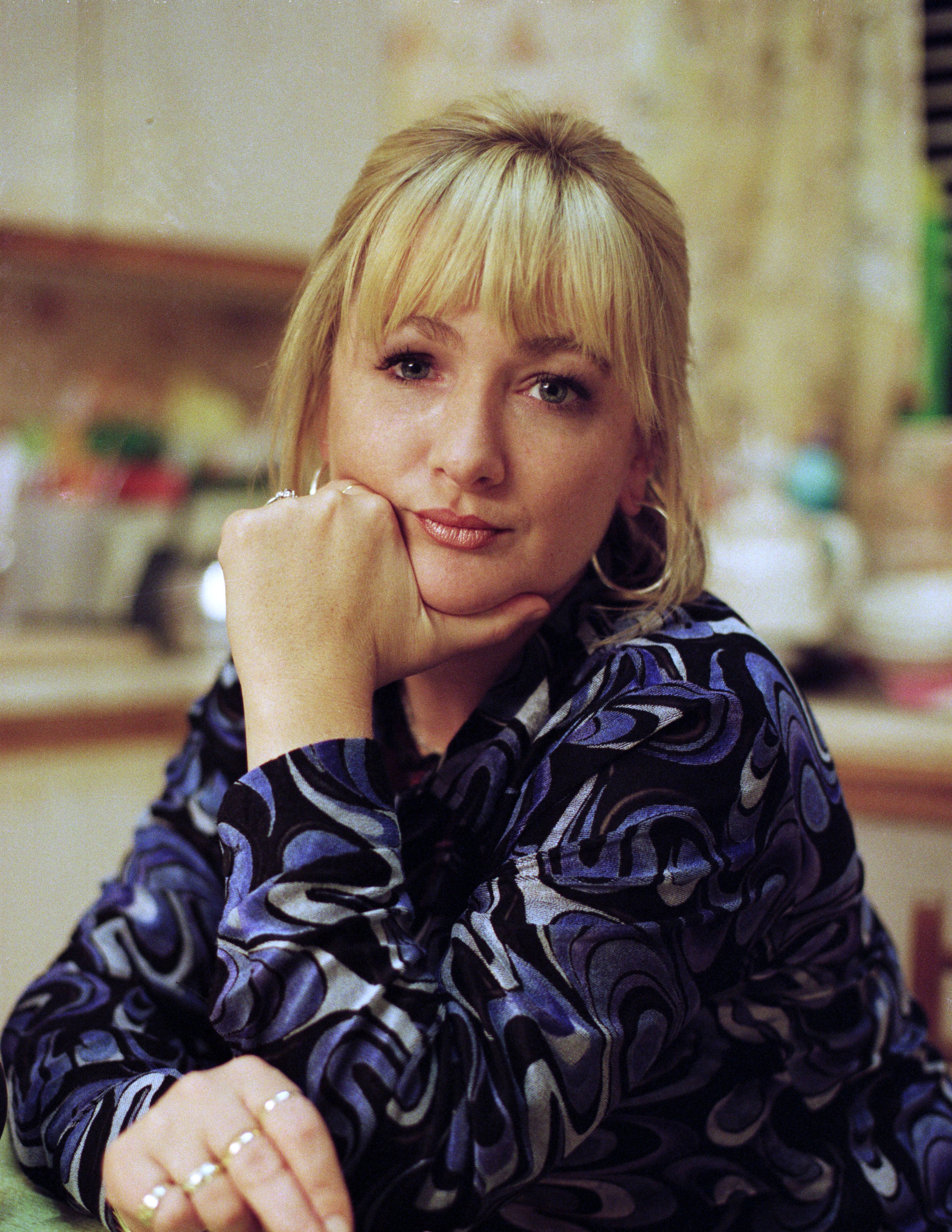‘I’d never seen anything like it’: How Caroline Aherne changed comedy
A new BBC Arena film exploring the work of the co-creator and star of ‘The Royle Family’ will air on Christmas Day, seven years after her death. Katie Rosseinsky speaks to the filmmakers about her comedy legacy


I always think too much happens in sitcoms, because people are funny, aren’t they?” If you were to try to sum up Caroline Aherne’s comedy credo, you’d struggle to do better than this soundbite from the woman herself. It features in the opening moments of a new Arena documentary celebrating her life and work.
Too much happening is not a charge you would ever level at her most beloved TV creation, The Royle Family, a show that barely ventured out of Jim and Barbara Royle’s front room in Wythenshawe, Manchester, playing out almost in real time. Canned laughter and zippy punchlines were out, replaced by banal questions (“Have you had your tea yet?”) and long pauses.
It was revolutionary. Ushering in a more naturalistic era for British comedy, it influenced everything from The Office (which borrowed its documentary style of filming) to Shameless (set in a similar Manchester milieu) – and pretty much killed off the traditional studio sitcom in the process. Its abiding image of the family gathering round to watch and critique the telly (who could forget Jim Royle’s pithy verdict on one of Laurence Llewellyn-Bowen’s Changing Rooms home makeovers: “Stencilling, my arse!”) lives on outside the comedy sphere in Gogglebox, which Aherne briefly narrated.
But The Royle Family is just one part of the rich legacy explored in Caroline Aherne: Queen of Comedy, which airs seven years after Aherne died of cancer aged 52. A genius (with an IQ of 176) whose life was often blighted by obstacles – from losing her sight in one eye during childhood due to retinoblastoma to her struggles with alcohol during her career’s peak – she had a knack for wringing caustic humour from the humdrum. As a shtick, it was – and still is – unrivalled.
We see her in her early days as a stand-up in the Eighties and early Nineties, as a sketch-show star, and as the deceptively acerbic pensioner Mrs Merton, hosting a celeb-skewering chat show as a character who was both “innocent and not one bit innocent at the same time”, as co-writer Craig Cash puts it. The latter half of the film then focuses on her stint on the Royles’ sofa, playing Denise, Jim and Barbara’s spoilt daughter, from 1998 onwards.
David Moulton, creative director at Passion Pictures, the production company behind Queen of Comedy, hails her not just as “a cultural and comic powerhouse” but as “a showrunner before the term was understood”. Her onscreen father Ricky Tomlinson clearly agrees: “Caroline was in charge and she knew what she wanted,” he says in the film.
Aherne was born in Ealing, west London, in 1963, but her parents moved to Wythenshawe when she was two. The documentary traces how her upbringing shaped her work, priming her to accurately chronicle the light and shade of working-class life. She portrayed it in a way that’s both affectionate and spiky.
“Caroline was a leading light in showing that working-class people can be on TV, being ourselves,” her co-star Ralf Little (aka Denise’s younger brother Antony) said in a tribute after her death. Her ear for dialogue was especially sharp, capturing conversations that meander from the profound to the commonplace (take Liz Smith’s Nana asking whether she has been a burden on her daughter Barbara in the 2006 Royle Family episode “The Queen of Sheba”, then quickly asking if vol au vents will be served at her funeral).

Moulton grew up a little further along the M60, in a village outside Bolton, and can still recall the jolt of recognition when he first saw the Royles on screen. “I’d never seen anything like it,” he says. “It was just like going round to my grandma’s house, with everyone gathered around the TV and everything revolving around it. It had such an understanding of my existence that I’d never seen before... I saw so much in common with my own family.”
That verisimilitude partly stemmed from Aherne and her co-writers Cash (aka Denise’s long-suffering partner, Dave) and Henry Normal mining their lives for anecdotes. “Everyday life mirrored her work to extraordinary levels,” says Hannah Lowes, who directed and produced the film alongside Claire Whalley. “Her friend Sean [Winterton, who appears in the documentary] would say that he’d tell stories from down the pub to Caroline, and two months later, it’d be on the screen or in a script.”
Two years ago, Moulton ended up revisiting some of Aherne’s shows. While he sat there, he says, he found himself thinking, “This person needs to have a film that elevates her work and what she did.” Comedy isn’t always examined with the same reverence that straight drama is, he explains, and “there was a slight danger of [Aherne] being a little bit forgotten”.
The first step was contacting Cash, her long-time friend and collaborator. He and Aherne first met when she joined Stockport radio station KFM in 1990 (“I’ve just met the funniest man in the world,” she wrote in her diary after meeting him). The pair initially served as late-night presenters, a gig to which Aherne was especially ill-suited. In the film, her friend Steve Coogan recalls how she once fell asleep for a few hours while on air, leaving the station broadcasting white noise. Much to her surprise, no listeners complained.
“Craig was the key person [to get on board for the documentary] because they were genuinely very powerful comic partners,” Moulton says. “It was the initial conversation with him that took time, because it was about me demonstrating what Caroline meant to me personally, then [Cash] understanding that he could trust us as a company to tell that story.”
Once Cash was on board, he helped to “open the doors” for other members of Aherne’s inner circle, Moulton adds. In the finished film, we hear from other famous friends and colleagues, from her Royle Family co-stars, such as Sue Johnston, Little and Tomlinson, to her peers from the Manchester stand-up scene such as Coogan, John Thomson and poet Lemn Sissay (she’d often be the only female performer on the bill; Sissay describes her as “the only woman within the company of wolves”).

Just as illuminating are the interviews with her pals Cal and Di, whose friendship with Aherne dated back to her time as a secretary at the BBC, where she worked after graduating from Liverpool Polytechnic (now John Moores University), and with her neighbour Sean (“She didn’t like everyone sucking up to her, and he was one of the only people who didn’t,” Moulton says).
While talking to Aherne’s confidantes, Lowes was struck by how they’ve kept her sense of humour alive: “They still go, ‘Oh, she’d find that funny, she’d like that,’” the director says. Many of them assured her that Aherne would love that the film was airing on Christmas Day, when so many families end up gathered around the TV, Royle-style (although in the documentary, Cash suggests she might have demurred a little: “She’d be quite bemused and amused that we’re all yapping about her,” he says).
Photos and video footage given to the production team by her family and friends let us see behind “the masks of Mrs Merton and Denise”, Lowes adds. Coogan, she says, provided them with “the only VHS copy” of The Dead Good Show, the Granada TV sketch pilot he made with Aherne and Thomson in 1992; the original, she says, was wiped because “the library didn’t have space to keep that width of VHS”.
Another highlight is a piece of footage from Cash, a memento trip to The Coronation Street Experience at the Granada Studios tour. Thanks to some (presumably then state-of-the-art) green-screen technology, Aherne, Cash and friends appear to be interacting with the stars of Corrie, ordering breakfast from a young Gail Platt.
He also helped the producers get hold of footage from one “very intimate moment”: when Aherne, dressed in character as Mrs Merton, briefly makes the sign of the cross before interviewing Bernard Manning. The comedian, then in the twilight of his career, was known for his unabashedly racist and sexist act; Aherne, under the guise of her guileless OAP persona, sharply took him to task (“Bernard, who do you vote for now Hitler’s dead?” she asks).
We never wanted to make a film that was sugar-coated
“I think it demonstrates her intellectual ability, because to manoeuvre someone like that ... was an amazing achievement,” Moulton says. “It was a really interesting statement of how comedy changed. I think, as a nation, we’ve forgotten about how racist comedians were very big and powerful back in the Eighties and Nineties,” he adds. “It’s almost like we’ve now ignored it, because I guess it’s too difficult to talk about. But it shows her bravery, the way she took him on.”
Although Aherne, along with her Mrs Merton co-writers Cash and Normal, could prepare for each of her sit-down chats with a few zingers (her opening gambit to Debbie McGee, asking, “What first attracted you to the millionaire Paul Daniels?”, remains the most famous), the show also relied on her talent for improvising.
“However much you can plan for some of those interviews and write some questions, you don’t know how they’re going to reply,” Lowes says, citing one particularly memorable encounter between Chris Eubank and Mrs Merton. The boxer refused to play along, answering in monosyllables. “Certainly she didn’t expect to be holding silences,” the director adds. “And she drops that line: ‘Come on, it’s a chat show!’ Every time I watch it, and I’ve watched it hundreds of times, it makes me laugh. I asked Craig, ‘Was it written?’ And he said no, because she didn’t know the interview was going to quite go like that.”
Watch those old interviews and Aherne comes across as entirely self-assured. But she also seems a deeply shy person who has a very complicated relationship with her fame: you get the sense that she loved her work, but hated the profile that came with it. “Even to her friends, she would be a barrel of contradictions,” Lowes says. “When she had those sparks of genius, she would really fly, but then she would be troubled by always having to be out there [in the public eye].”
It didn’t help that the tabloid press rushed to chronicle her every up and down, excavating failed relationships and crowing over her drinking. She was also grappling with depression at the height of her fame. “I just couldn’t rid myself of this thing inside me that made me want to cry all the time,” she tells Michael Parkinson in an old interview.
Eventually, during a stint in the Priory after a suicide attempt, she was diagnosed as an alcoholic; a few years later in 2001, she announced that she was turning her back on the TV world, kicking off a hiatus that ended when Cash and co persuaded her to work on a one-off Royle Family special, which ended up becoming one of the show’s most moving episodes, “The Queen of Sheba”.
Working out how to present Aherne’s struggles without veering into tabloid-esque voyeurism was one of the biggest challenges for the filmmakers. “We never wanted to make a film that was sugar-coated,” Lowes says, “so it was working out how much of those difficulties we told.” Many of their contributors, she notes, “told lots of intimate stories to us. But lots of them we didn’t include, because [Aherne is] not here to stand up for herself; she’s not here to go, oh, I like that, I don’t like that. And that’s a huge responsibility as a director, to go ‘What is right by her? What feels fair?’ It’s finding that balance, and Craig helped with that as well.”

There were earlier cuts, Lowes adds, “that leaned more towards her troubles, and then when you watched it [back], it just didn’t feel in keeping with her”. Moulton agrees. “I think the thing we always had to balance was making sure that we were proportionately bringing the audience along on the journey, which was essentially [that] Caroline was a very, very funny woman in many different ways, and that the audience could enjoy that alongside the tragedy that happens in her life. And getting that balance took a while. It was an experiment in the edit, and there’s versions where it came out a bit too sad.”
It was, he adds, “a very fine line to manage” – but it’s also one that Aherne was able to walk so well in her work, “which is a complete laugh one minute, then very emotional the next”. Take the Christmas episode of The Royle Family, for example, when a pregnant Denise has a heart-to-heart with her father as her waters break. “You definitely sure it wasn’t just a great big piss, love?” Jim asks her after sharing his memories of her own birth. “All those tears were real,” Tomlinson recently recalled to The Guardian. “What stood out about that scene, to me, was everyone was crying... everyone.”
When we look back at Aherne’s story, it’s hard not to think about the comparative dearth of opportunities for working-class writers trying to break into TV right now: the industry, Moulton notes, is “a world where in some ways it’s harder to get an opportunity than ever”. In 2021, research from the Creative Industries Policy and Evidence Centre found that more than half of those working in the UK screen industries hailed from privileged backgrounds, while those from working-class backgrounds were significantly underrepresented, accounting for just one in four of the industry’s workforce.
Moulton hopes that showcasing Aherne’s work will “make sure that the next working-class woman [writer], whether she’s in Bolton or Blackburn or Burnley – wherever – is inspired that [Aherne] managed to make this happen”. We need to foster the circumstances to give her potential comedy heirs the chance to succeed, he explains. Otherwise, “culturally, we’ll be the lesser for it”.
‘Caroline Aherne: Queen of Comedy’ is on BBC Two at 10.25pm on Christmas Day
Join our commenting forum
Join thought-provoking conversations, follow other Independent readers and see their replies
Comments
Bookmark popover
Removed from bookmarks